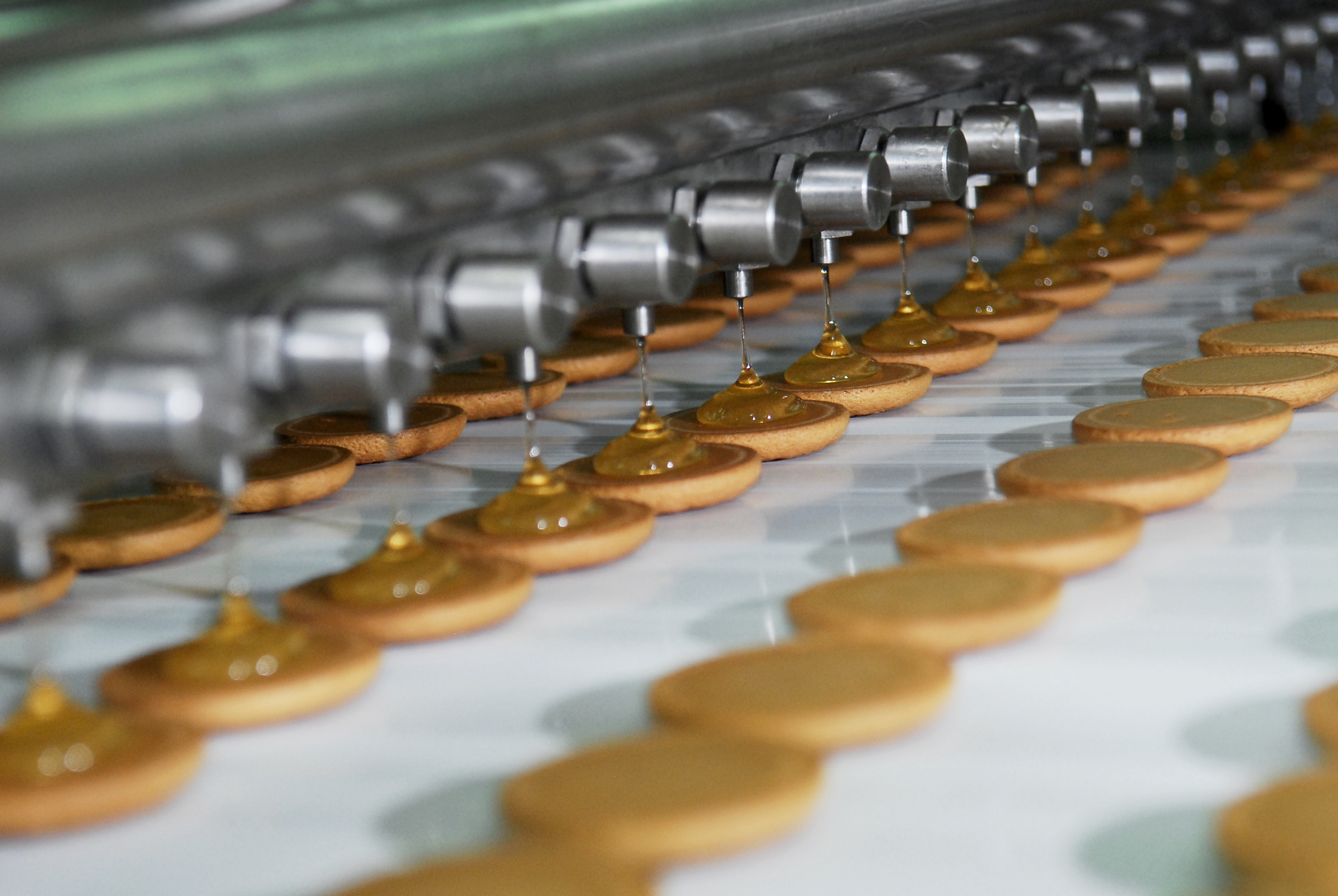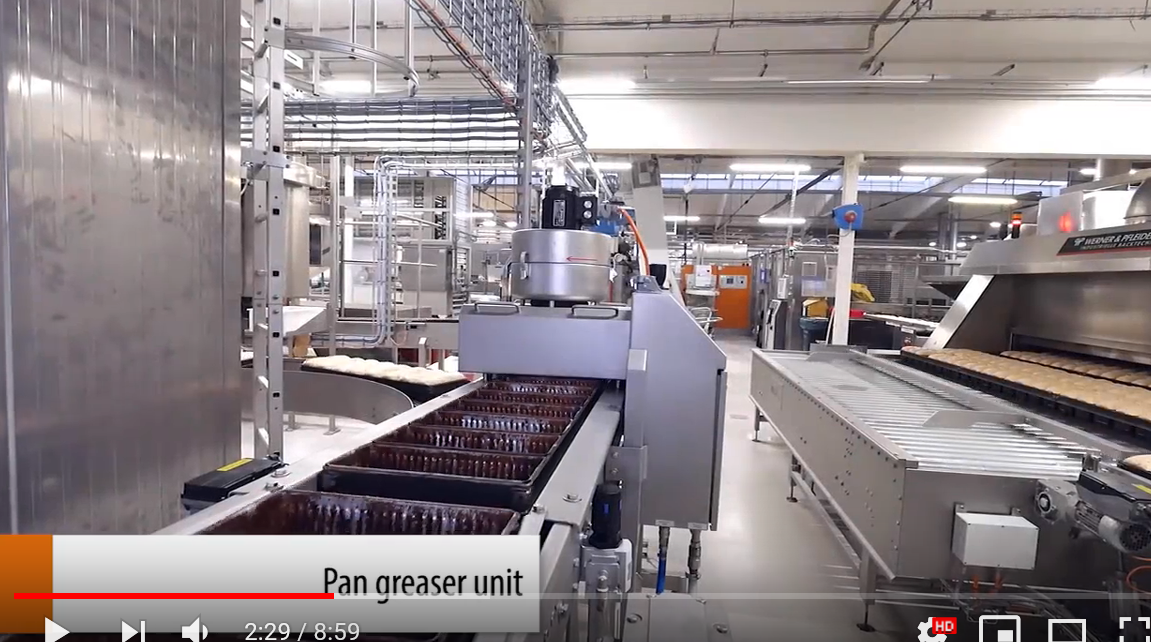One of the main risks to employee health within food manufacturing facilities is the quality of the air - this is due to the nature of common processes including tipping, mixing, grinding and milling.
Research tells us that flour dust can act as an irritant which causes short-term respiratory, nasal and eye problems for workers, as well as potentially causing an asthma attack among those who suffer with the condition. Exposure to high levels over a prolonged period of time can lead to longer-term illnesses including allergic rhinitis and occupational asthma for bakers and millers, as well as those working within plant bakeries and the food production industry specifically dealing with items such as cakes, biscuits and pastries.

In fact, the Health and Safety Executive (HSE) states that exposure to flour dust is the UK’s second most common cause of occupational asthma. Exposure limits set down by the HSE in the Control of Substances Hazardous to Health 2002 (COSHH) are very clear:
The maximum acceptable exposure over an eight-hour period is 10mg/m3, with a maximum short-term limit (15 minutes) of 30mg/m3.
However, it’s not enough for employers to simply aim for levels just below maximum acceptable rate – more and more businesses are waking up to the need to provide the cleanest possible operating environments. The HSE itself states that businesses should aim for as far below the limits as feasible, with an ‘acceptable’ long-term level being around 2mg/m3.
Why should the limits be reduced?
As well as complying with the law, reducing flour dust is all about preserving the health of the individuals working within a company – something we know can be permanently compromised by the substance. Data collected on new cases of occupational asthma shows exposure to flour/grain was cited as the agents responsible for some of the highest proportion of cases (after isocyanates). Further to this, official questionnaires about the causes of work-related illnesses showed that, of those reporting breathing and lung problems, 7% said the cause was ‘dusts from flour or grain/cereal, animal feed or bedding’.
What can employers do?
Using Local Exhaust Ventilation (LEV) to reduce flour dust is an approved way of minimising the risk to employees as well as guaranteeing companies are operating within the legal emissions limits. Once an appropriate LEV system is installed, visual checks should be regularly undertaken to ensure the system is performing as intended, and it should be thoroughly tested by a competent person at least once every 14 months under HSE guidelines.
It’s the duty of employers to ensure that the health and safety of employees – as well as others entering their manufacturing facilities – is protected. Comprehensive assessments should be carried out to identify where any potential risks lie, and procedures and policies put into place to control and minimise them. Employers should understand their duties under the HSE regulations, and should also undertake regular consultations with their team to provide information, instruction and training in relation to their health, safety and welfare.
How can Filtermist ensure food operatives are protected from exposure to airborne particles?
SHAPA member Filtermist offers a wide range of solids handling and processing products and services. Some are designed to protect food production operatives from exposure to hazardous airborne particles and comply with COSHH and DSEAR regulations, whilst others minimise product wastage.
Filtermist Systems Limited
Filtermist’s dedicated systems division includes experienced design and contracts engineers who have delivered a wide range of customised air movement and pollution control systems for many leading food producers including Cadbury, Halo Foods, Taylors of Harrogate, Weetabix and Ryvita. Our team also works with a number of customers in the packaging and converting industry whose products are destined for use by food and beverage producers.
Our turnkey service includes initial consultation and project planning, system design, specification, equipment manufacture and supply, installation, commissioning and aftersales services including COSHH complaint LEV Testing.
Download our Systems brochure to find out more about how we work: 004 Filtermist systems brochure_web.pdf (1,002.82 kb)
Manufactured products
Dustcheck filters
 The Dustcheck brand, which became part of Filtermist’s portfolio back in 2017, includes dust control products specifically designed for use in food environments. Sack tipping units provide controlled conditions for the safe decanting of products such as flour, with some models incorporating safe bag disposal facilities.
The Dustcheck brand, which became part of Filtermist’s portfolio back in 2017, includes dust control products specifically designed for use in food environments. Sack tipping units provide controlled conditions for the safe decanting of products such as flour, with some models incorporating safe bag disposal facilities.

Other products include vessel venting filters which are used in processes where dry powers cause air displacement. Displaced air flows through the filter, separating the particulate to allow clean air to be vented. The filtered particulate is returned to the vessel via an automatic reverse jet cleaning system, allowing continuous venting. Inlet protection filters (IPFs) are also widely used in production lines in the food industry - IPFs filter air before, during or after the production process.
Dustcheck Product Manager, Andy Darby, comments, “Dustcheck products are used in a number of bulk handling applications in the food industry. Our standards of construction vary from mild steel with standard or special paint finishes to stainless steel (grade to suit ie. 304 or 316) with finishes from standard sheet with welds as laid, to special crack and crevice free polished finishes.
“All of our filters come with ATEX rated options meaning potentially explosive and volatile products, such as flour, can be handled safely. They can also be built to comply with Dangerous Substances and Explosive Atmospheres Regulations (DSEAR) where applicable.”
Kerstar ATEX rated vacuum cleaners
 Filtermist is also responsible for the Kerstar brand of industrial vacuum cleaners, including its ATEX approved models. The KEVA range is certified for use in Dust Zone 22, whilst the KAV range is suitable for picking up hazardous dust and debris in Dust Zone 21.
Filtermist is also responsible for the Kerstar brand of industrial vacuum cleaners, including its ATEX approved models. The KEVA range is certified for use in Dust Zone 22, whilst the KAV range is suitable for picking up hazardous dust and debris in Dust Zone 21.
More details about ATEX can be found on the HSE website.
Vegetable oil mist removal
Both Filtermist and Absolent oil mist filters can also be used in food processing applications – specifically for removing mist generated by spraying vegetable oil onto bakery equipment in production lines to stop product sticking. If left in the atmosphere, vegetable oil mist can be hazardous to health when breathed in, pose a fire and slip risk, and damage sensitive electrical equipment. 
This film shows a stainless steel Filtermist unit being used in an automated bakery production line (please scroll to 2:24 in).
Contact our Sales Team to discuss how Filtermist can help your business to be cleaner, safer and more productive, or visit Filtermist on Stand L261 at Foodex from 30th March - 1st April 2020.